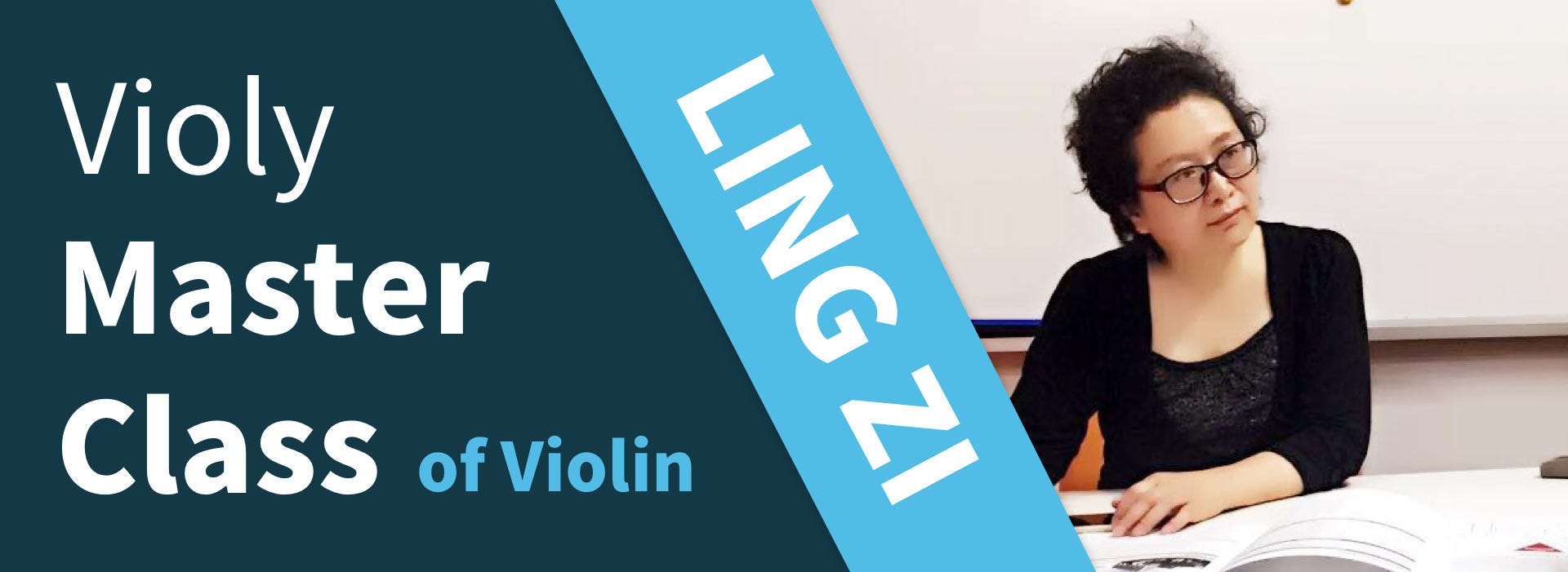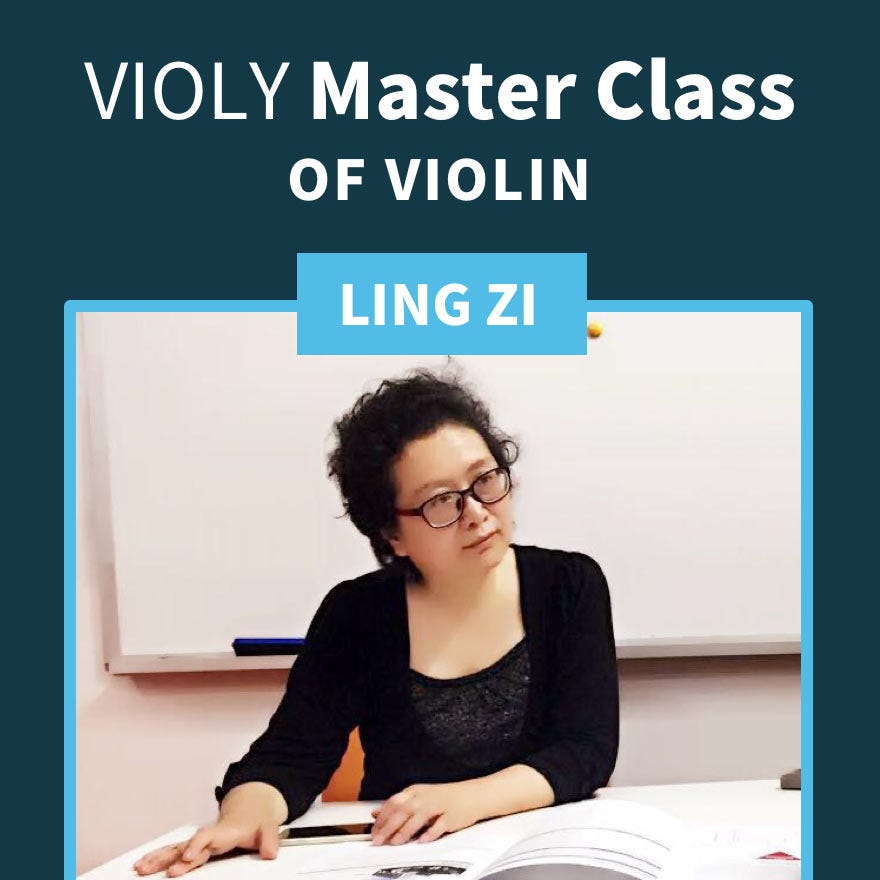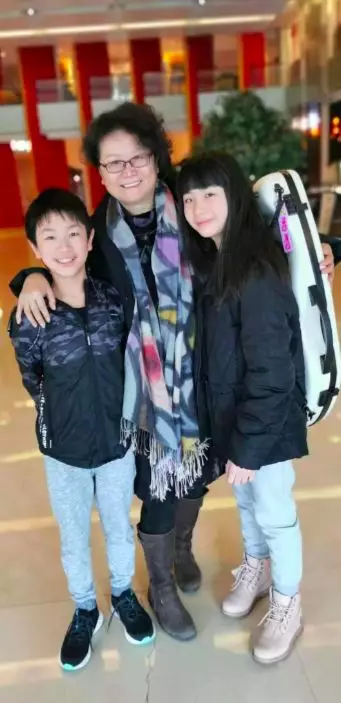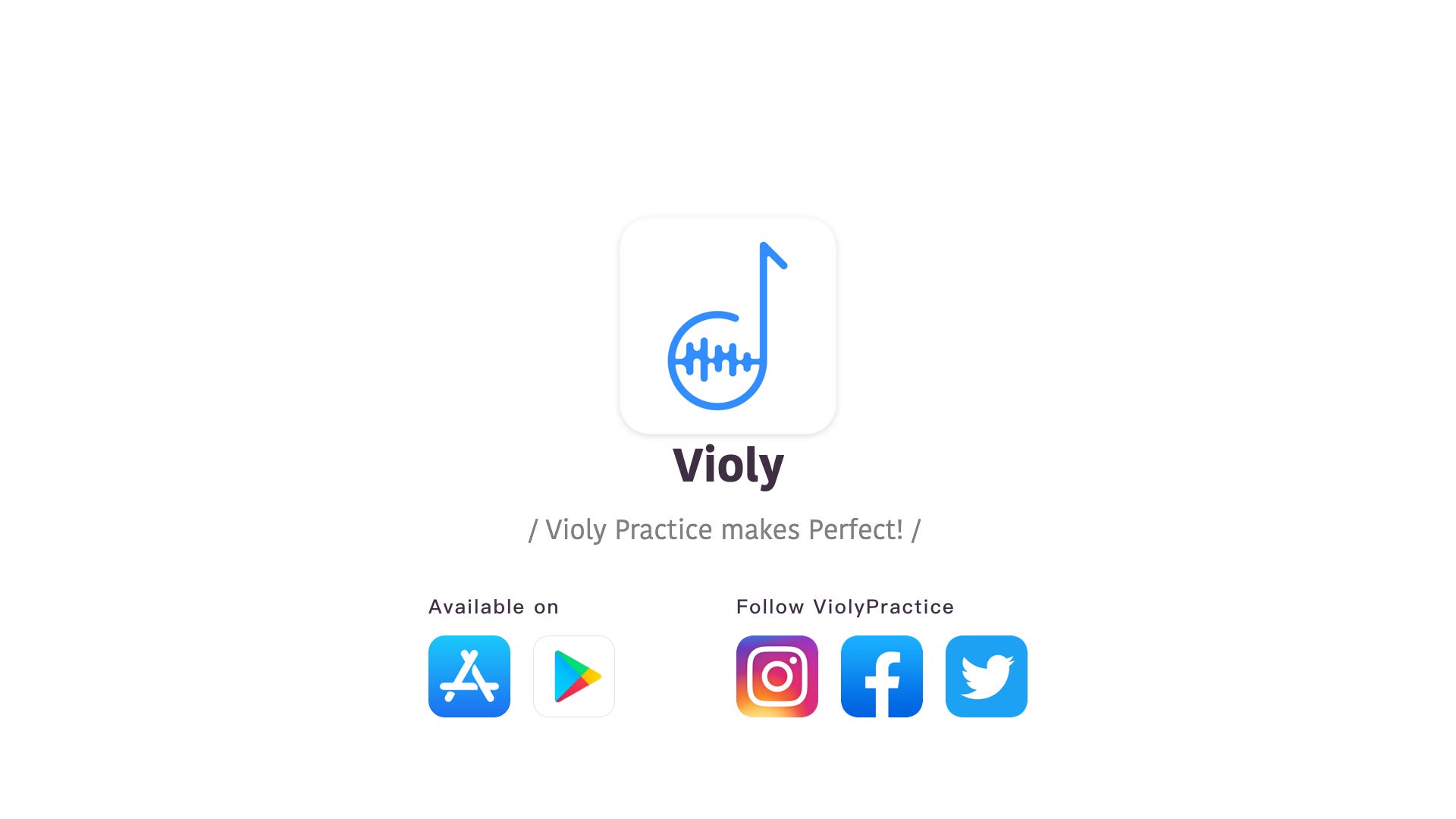Parents’ Role in Violin Practice
Ling Zi is a skilled expert of music education. In this Violy master class, she shared some views about music education and what parents should do to help their young learners.

Content of Ling Zi’s lecture is as follows (edited in first person):
Violy parents and teachers, good afternoon! I am glad to have the chance to share my views.
Some parents say they do not have enough time to be with their children and have little communication with them in daily life. As a result, the parents may have problems dealing with their young learners’ violin learning. My lecture today is to help parents solve the problems and guide them through what they can do during children’s learning process.
A Violin Teacher’s View: Why Do Children Learn to Play the Violin?
This question is widely discussed. As a music educator for years, I think learning the violin can bring 3 main benefits:
First, it can arouse children’s interest in music and give them an opportunity to plan their career earlier.
Second, it can help improve the relationship between children and parents.
Third, it can help train the musical talents for the country.
Let’s start from the first benefit. Some parents say that they support their children to learn the violin because the children like what they learn and have a talent for it. Actually, it is hard for non-professional parents to tell whether the young children do have a talent or not. Parents need to pay attention to their children’s learning. Many children may have great passion when they just start to learn, but later, they are likely to lose interest or practice less for a variety of reasons. This kind of situation is very common in some way.
Children are different from each other. But mostly, they are so young that they need parents’ rational guidance to persist in practicing. Strong interest is the start point of many children’s road to music.
When children choose to learn the violin, parents should figure out what can music bring to their young learners. Apart from helping build up willpower and broadening knowledge, learning music can also play an important role in children’s career planning in the future. It is not likely for every music learner to become a musician, but a person who has learned music may have more choices when choosing an occupation since his or her comprehensive quality got improved during years of music training.
Therefore, I suggest parents help their children improve musical quality and skills from childhood. During the process, parents may find that their children gain improvements in other aspects as well.
Now let’s move on to the second benefit. Parents can grow up together with children to maintain good relationship with them. One effective way is to learn music with children. Many parents may learn with their children at the beginning but quit for some reasons later, such as being lack of time or failing to catch up with children. In this case, I think parents should maintain a positive attitude during the process. Children can be parents’ teachers sometimes and they are willing to do so.
Some excellent musicians have common musical topics to discuss with their parents. They also appreciate and talk about music together. Our parents can do it as well. I hope our parents can broaden their musical knowledge first so that they are able to understand the children’s playing and find out the mistakes. Only in this way can the parents help their young learners in practicing, and then both parties are more likely to find common topics and strengthen the bond of parent-children relationship.
As for the third benefit, I think parents have a duty to pay more attention to helping their children if the children are very talented, because they can become musical talents for the country. It is almost impossible for a person to become an excellent musician by himself only. Most musicians become successful because they start to learn music at a young age and have parents’ support and teachers’ guidance all along. It takes time to tell whether the children can have achievements in music or not. Parents’ company and teachers’ guidance are extremely significant.
When Should Children Start to Learn the Violin?
I think the best period to start is preschool age. We do not expect children to start playing the violin at a very young age, but we can give them a chance to listen to beautiful music first. When the children are three and a half years old, parents can introduce some basic music training, such as rhythm and singing training. Under this condition, children can enter the process of violin learning more easily. On the other hand, parents can encourage children to perform in front of people. For example, the performance can be seen by violin teachers and students via group video call. In this way, children are also able to communicate with their peers.
A Violin Teacher’s Experience in Handling the Problem of Boring Practice
Practicing for a long time can be boring for young learners. I suggest parents shorten the practicing time for their children. For example, parents can let children practice for one hour or 40 minutes each time. After practicing, children can be allowed to have a rest and do some other things, like playing games.
Some parents say that their children always waste time on little things before practicing. To deal with this, parents can ask some questions based on the piece their children are practicing, like “who wrote the piece”, “is there any other versions”, “what are the differences between this version and another version”, etc. If the children have no idea about the questions, parents can help them search for the information online. In this way, children can feel their parents’ caring and may find some topics to discuss with parents then.

How to Arouse Children’s Interest and Help Develop Their Persistence?
Before the age of three and a half, children are supposed to set up the concepts of rhythm and melody. They do not need to learn some instruments at this moment, but they can listen to different sounds, like clapping hands, bouncing the ball and tapping against the glasses with different amount of water. These do help.
When children start their violin learning, parents are supposed to tell the young learners to practice carefully and help them solve the problems they encounter. When there are some problems, parents should analyze with their children and find out how to deal with them. Besides, turning to teachers can help as well. Sometimes it may take some time for children to solve the problems completely, so parents need to be patient.
On the other hand, it is important for parents to set good examples for their children. Setting up rules for practicing is helpful.
Tips from A Violin Teacher: How Do Parents Help Children’s Practice?
Some parents may say they are too busy to accompany their children during their practicing. In fact, parents can still set aside some time to know more about their children’s playing. Parent’s company is not just sitting beside the young learners when they are practicing, but helping them practice more effectively. For example, sometimes children may find it difficult to understand a certain work, then parents can search for more information of the piece to improve the young learners’ understanding. Moreover, parents can download the music their children are learning and let the young learners listen to it for more times. These things are not hard for parents to do.
What Are Good Violin Teachers Like?
I must say that good violin teachers are those who are suitable for the children. If the children just start to learn, it is not necessary to find them an international master. A careful and responsible teacher who was trained professionally is OK. If parents find their children talented after learning for some time, they can take the children to participate in some high-quality summer camps of violin.
I have held a summer camp myself for 26 times. Many children who have entered the camp find that it is a good platform for meeting excellent teachers and communicating with peers. It also provides the talented children with an opportunity to become violin masters’ students. For parents, they can get to know how the masters evaluate their children’s playing. It is important for both parents and children to decide whether the professional path is suitable or not.
On the other hand, I would like to tell our parents not to push their children too hard. What the children need to do is making progress during learning and practicing. It is not necessary for parents to force their children to speed up too much. Or the children may break down. Having a sense of achievement during practicing counts more for children.
To sum up, there are 4 things that parents need to pay attention to during their children’s music learning:
First, choose a suitable instrument for children.
Second, create a good learning environment for children.
Third, select a good teacher.
Fourth, take some time to accompany children.

Violin Q&A:
Violy: When do you think it is suitable for children to change teachers?
Ling Zi: It depends on children’s playing. If the children are very talented and decide to go professional, and their current teachers have some limitations themselves and cannot instruct the children anymore, the children may consider switching to a more professional teacher. If the children do not intend to go professional, and their teachers are trained and responsible, they do not need to change teachers.
Violy: In your opinion, what are the differences between Chinese and Western music education? What improvements should Chinese young learners make?
Ling Zi: I think the biggest difference is the emphasis on music accomplishment. Western parents pay much attention to it while Chinese parents focus more on children’s skills, results of competitions and grading tests. Chinese young learners should make improvements on their music accomplishment.
Violy: Could you please give a brief introduction of your summer camp?
Ling Zi: My summer camp started from 2002. The guest of my first summer camp is Ms. Zhao Wei, the well-known professor from Central Conservatory of Music (CCOM). We invite excellent teachers from music conservatories in China or even worldwide to our summer camp to help parents solve problems related to their children’s practice. We also have forums for teachers and parents who participate in the summer camp. They can communicate with each other in the forums. Besides, we hold the summer camp in different cities each year. In this way, more students from different places can have a platform for peer communication.
Violin parents: How can children schedule practicing since they are busy with their schoolwork?
Ling Zi: There is no fixed answer for this question. I would like to give an example here. I visited a child’s parents 10 years ago. The child was excellent in his schoolwork. His parents drove to pick him up every day. At noon, he had his lunch in the car and started to practice as soon as he arrived at home. Then he got 30 minutes for practicing. When he was after school in the afternoon, his parents picked him up, and on the way home, the parents played the recording of the piece he needed to practice. It may take 20 to 30 minutes. Then he practiced for about half an hour when he finished homework in the evening. In this way, the child got one and a half hours to practice every day. He did not become a musician later, but he managed to arrange his study and life very well then.
Violin teachers: Sometimes we find some children very talented and may be suitable to go professional, but their parents think the children should pay more attention to their schoolwork, how can we persuade the parents?
Ling Zi: First of all, we must confirm whether the children are talented for sure and whether they are suitable to go professional. Professional teachers can tell if parents take their children to meet them. If the children are suitable to go professional indeed, parents may rethink about the children’s career path. On the other hand, children’s willingness should be taken into consideration as well.
Have a HAPPY practice!!
More Violy Master Class Articles:
Cello Master Class - Wu Linfeng
Violin Master Class - Wang Boyang
#ViolyPractice makes Perfect!!
Follow us on: Violy.app
